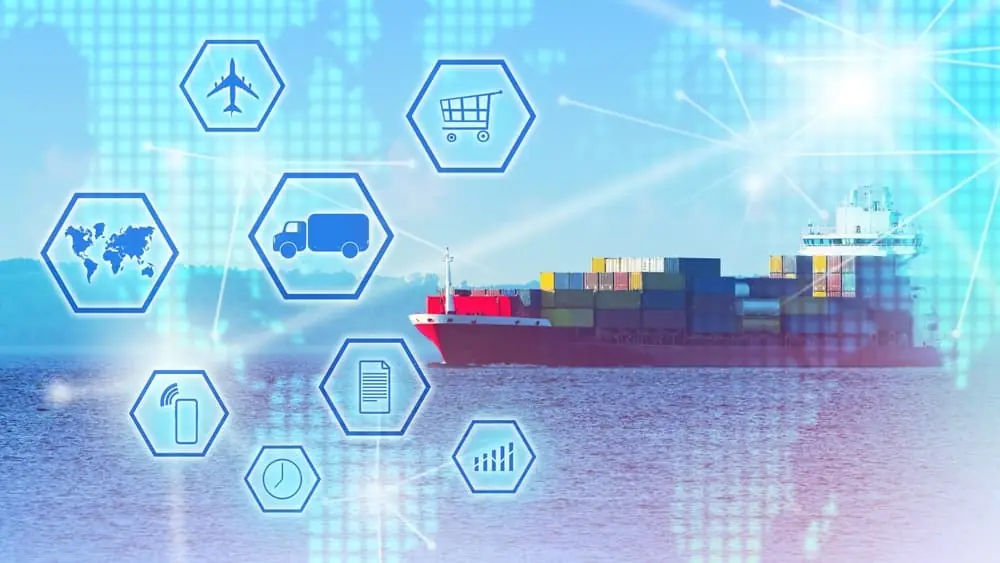
What is Free on Board (FOB) in Shipping?
Free on Board (FOB) is a shipping term that determines when ownership and responsibility for goods transfer from the seller to the buyer.
When it comes to shipping, understanding the various terms and acronyms is crucial. One such term is “Free on Board” or FOB. If you’re involved in logistics or considering shipping goods, it’s essential to clearly understand what FOB means and how it affects your shipping arrangements.
What Does FOB Mean In Shipping?
Free on Board, or FOB, is a shipping term that defines the point at which ownership and responsibility for goods are transferred from the seller to the buyer. It indicates who bears the risk and cost of transportation during the shipping process. The FOB point can be a specific location, such as a port, warehouse, or other designated points.
Key Takeaways
- FOB stands for Free on Board or Freight on Board and determines the point at which ownership and risk of goods transfer from the seller to the buyer during shipping.
- “FOB Origin” implies that the buyer takes on all risks as soon as the seller ships the product.
- “FOB Destination” means that the seller assumes the risk of loss until the goods reach the buyer.
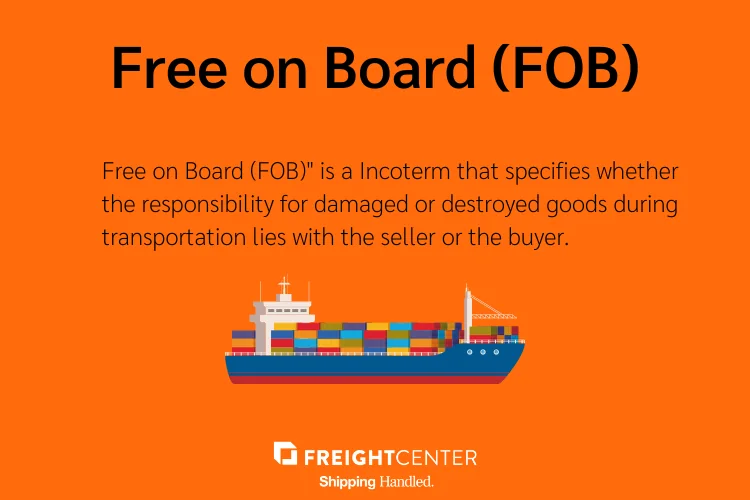
- 2021, 2017 & 2016 Food Logistics’ Top Green Providers
- 2021 & 2018 Supply & Demand Chain Executives’ Pros to Know: Matthew Brosious
- 2020 & 2019 Top Food Logistics’ 3PL & Cold Storage Provider Award
- 2020 & 2019 Business Observer’s Top 500 Companies on the Gulf Coast
- 2020 & 2017 SmartWay® Transport Partner
- 2020 & 2017 Food Logistics’ Champions: Rock Stars of the Supply Chain
- 2020 Best of Palm Harbor Awards for Local Businesses
- 2017 Green Supply Chain Award from Supply & Demand Chain Executive
- 2017 Tampa Bay Business Journal Heroes at Work
- 2016, 2015, & 2012 Food Logistics Top 100 Software and Technology Providers
- 2013 Tampa Bay Business 100 by Tampa Bay Business Journal
- 2013 Top 100 Great Supply Chain Partners by SupplyChainBrain
- 2012, 2011 & 2010 TBBJ Fast 50 Recipient
- 2013, 2011, & 2010 Diversity Business Top Businesses

Why Hire a Pro Like FreightCenter?
Understanding shipping terms like FOB can be difficult but are crucial for successful logistics management. If you’re feeling overwhelmed, partnering with a seasoned freight provider like FreightCenter is a smart move. Our expertise and complete shipping solutions can help you understand and meet FOB and other shipping needs, making sure your goods reach their destination smoothly.
Freight Payment Terms Commonly Used In FOB Agreements
The term ‘FOB’ (Free On Board) is used in freight shipping to specify when the responsibility for freight costs and risks transfers from the seller to the buyer. There are four main variations of FOB terms:
1. FOB [place of origin], Freight Collect:
The seller is responsible for delivering the goods to the specified location, but the buyer is responsible for paying the freight costs from that point forward.
2. FOB [place of origin], Freight Prepaid:
The seller is responsible for delivering the goods to the specified location and paying the freight costs in advance.
3. FOB [place of destination], Freight Collect:
The seller is responsible for delivering the goods to the specified location, but the buyer is responsible for paying the freight costs from that point forward.
4. FOB [place of destination], Freight Prepaid:
The seller is responsible for delivering the goods to the specified location and paying the freight costs in advance.
FOB Origin vs. FOB Destination
The two primary variations of FOB are FOB Origin and FOB Destination. FOB Origin means that ownership and responsibility pass from the seller to the buyer at the point of origin, typically the seller’s location or the shipping port. In this case, the buyer assumes all transportation costs and risks from that point forward.
On the other hand, FOB Destination signifies that ownership and responsibility shift to the buyer when the goods reach the destination. Until the goods arrive at the designated location, the seller retains ownership and covers the transportation costs and risks associated with the shipment.
Who Pays Freight for FOB Origin?
When dealing with FOB Origin, the buyer is responsible for freight costs. Since ownership transfers to the buyer at the point of origin, they are accountable for arranging transportation and covering associated expenses.
What is FOB Pricing?
The term “FOB price” refers to the Free On Board price, which is the cost of goods, including all expenses, up to the point of loading onto a vessel for shipment.
FOB pricing typically covers:
- The cost of the product
- Transportation to the port
- Export duties
- Loading charges
- Taxes and export fees
Once the goods are on board the vessel, the buyer assumes responsibility for the shipment, including transportation costs, insurance, and any risks associated with the transit to the destination. FOB pricing is commonly used in international trade to clarify the point at which ownership and risk transfer from the seller to the buyer.
What is the Difference Between FOB and CIF?
FOB and CIF are frequently compared, as both terms determine the point at which ownership transfers during shipping. However, CIF (Cost, Insurance, and Freight) includes the cost of insurance in addition to transportation, while FOB only covers the cost of transportation up to the specified FOB point. The buyer’s responsibility begins after the FOB point with FOB, whereas CIF includes transportation and insurance up to the destination.
We aim to generate value for our customers by providing tailored shipping solutions that address their requirements. Our commitment involves handling shipping demands, ranging from straightforward to intricate, with expertise, guidance, and innovative solutions.
It is the preferred method in situations where cargo needs to traverse oceans or navigate through different countries, ensuring the efficient and secure movement of goods on a global scale.
FreightCenter provides comprehensive international shipping services, supporting businesses in navigating the intricacies of global trade. Our extensive network of reliable carriers and agents is adept at managing every facet of international shipping, encompassing customs clearance, documentation, and freight forwarding. We deliver competitive rates and tailor-made solutions to address the distinctive requirements of each shipment.
Our comprehensive array of trucking services encompasses a range of specialized options to suit diverse shipping needs. From Less Than Truckload (LTL) for smaller shipments to Full Truckload (FTL) for larger consignments, we provide tailored solutions. Additionally, our expertise extends to Refrigerated trucking, ensuring the preservation of temperature-sensitive cargo, and Flatbed trucking, accommodating oversized or uniquely shaped freight.
The swiftness inherent in air freight proves to be a significant advantage, particularly for shipments with time-sensitive demands. This expedited mode of transportation becomes especially advantageous when dealing with international shipping requirements, ensuring timely deliveries across borders.

Free On Board Examples
Free On Board Examples
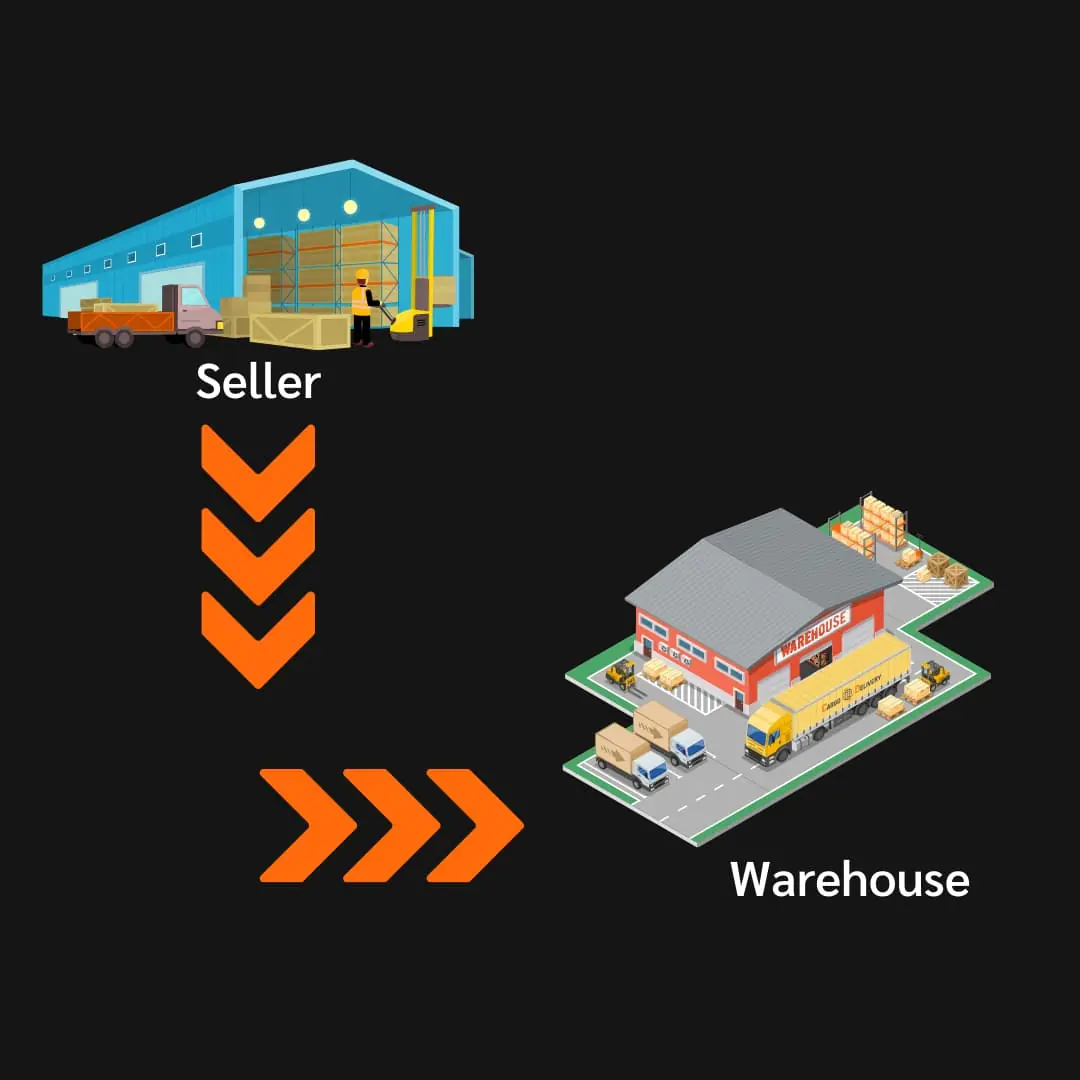
FOB Origin, Freight Collect
A furniture manufacturer in North Carolina agrees to sell a dining room set to a furniture retailer in CA. The FOB terms for the transaction are FOB Origin and Freight Collect. This means the seller is responsible for delivering the dining room set to the freight carrier's terminal in North Carolina. Once the goods are loaded onto the carrier's truck, the buyer takes responsibility for the goods and pays the freight costs from that point forward.
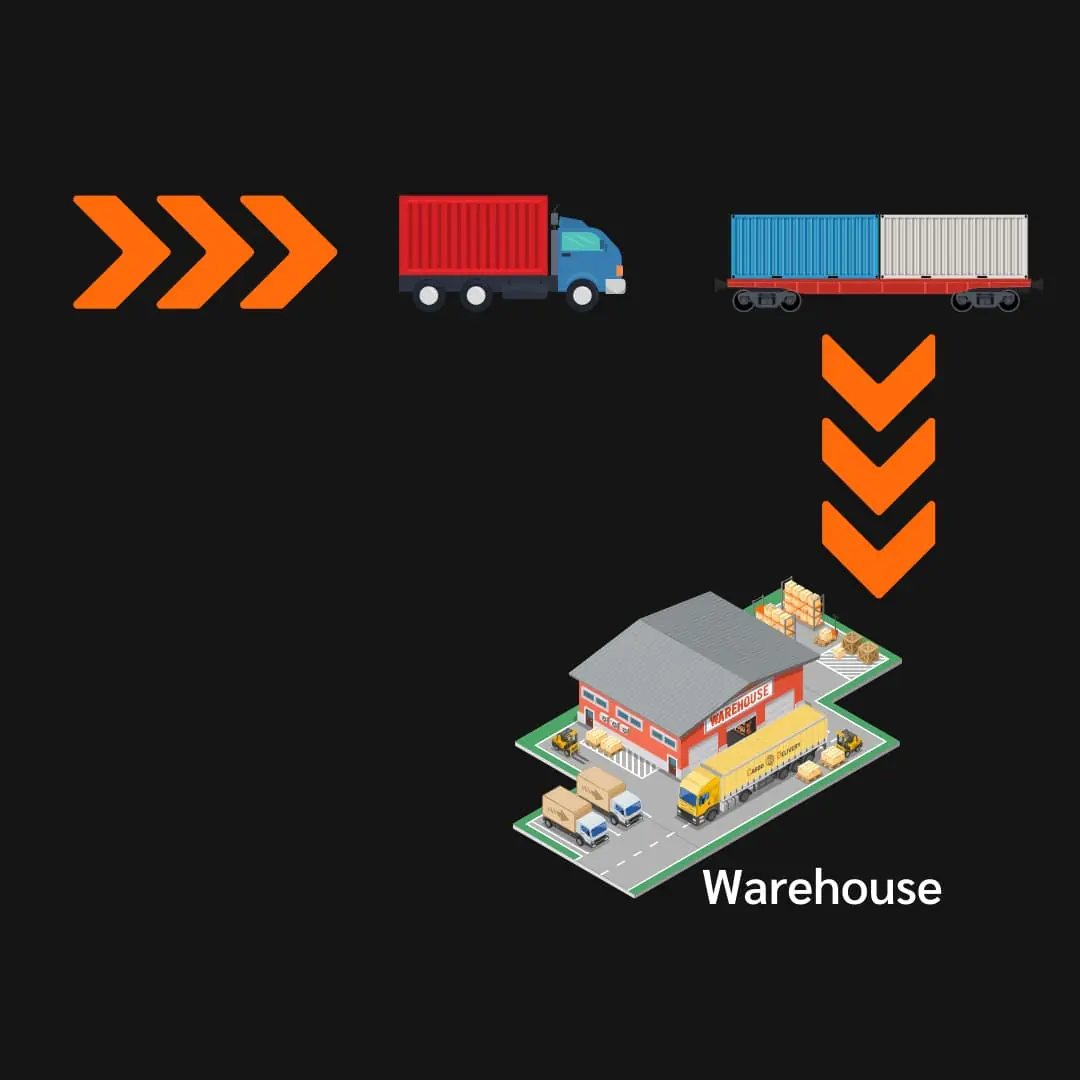
FOB Dest, Freight Prepaid
An electronics company in China sells laptops to a distributor in the United States. The FOB terms for the transaction are FOB Destination and Freight Prepaid. This means the seller is responsible for delivering the laptops to the distributor's warehouse in the United States and paying the freight costs in advance. The risk of loss or damage to the goods transfers to the buyer once the goods are unloaded at the distributor's warehouse.
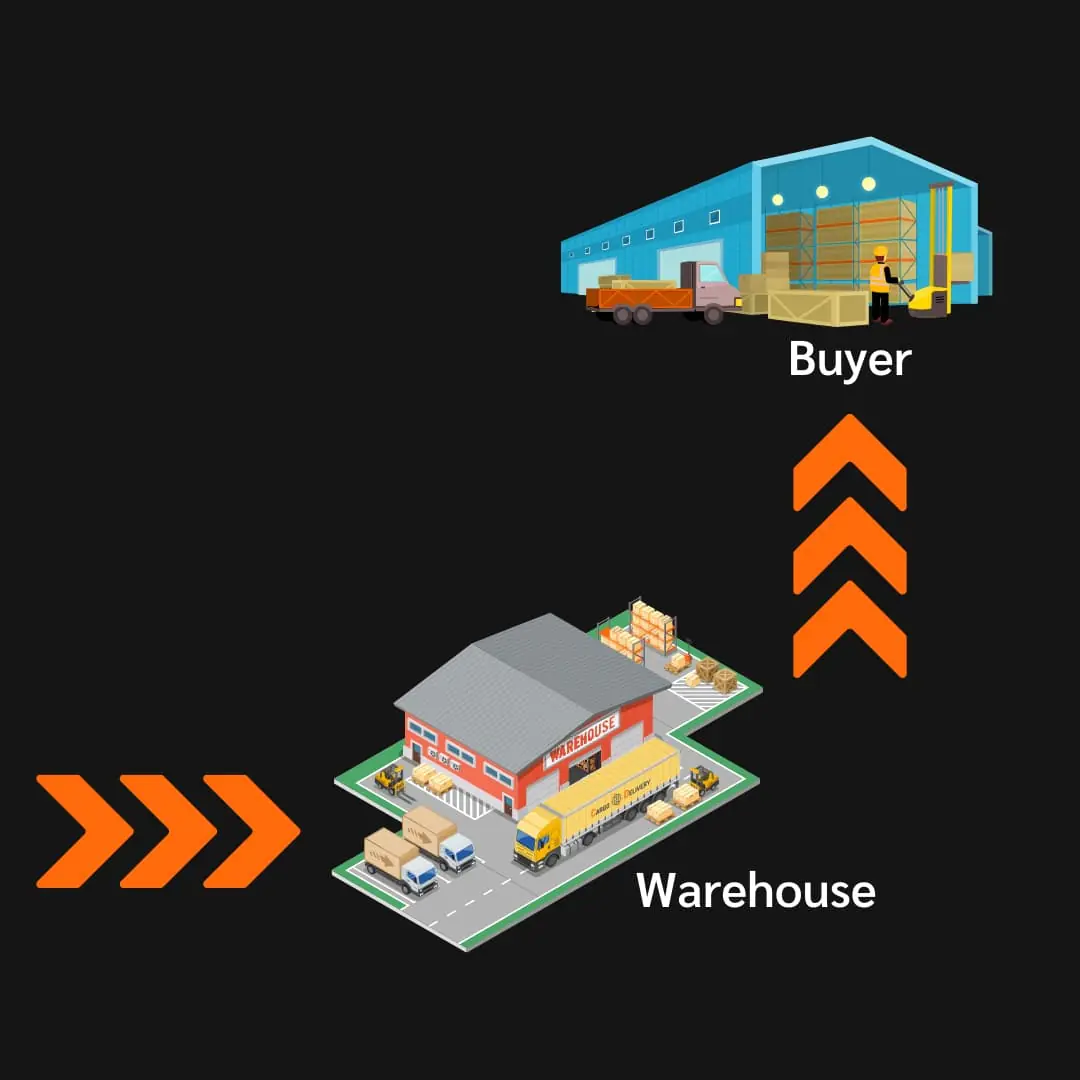
FOB Origin, Freight Prepaid
A clothing manufacturer in Italy sells a collection of dresses to a boutique in New York City. The FOB terms for the transaction are FOB Origin and Freight Prepaid. This means that the seller is responsible for delivering the dresses to the freight carrier's terminal in Italy and paying the freight costs in advance. The risk of loss or damage to the goods transfers to the buyer once the goods are loaded onto the carrier's ship.
